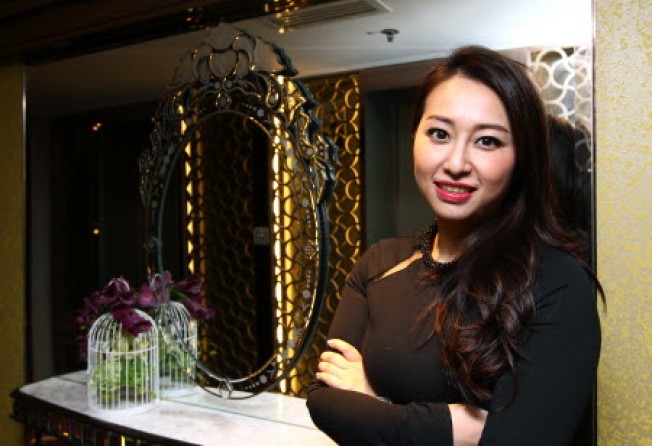Dorsett hotels follow the ‘Chinese wallet’
Dorsett Hospitality's Winnie Chiu talks about the hotel operator's expansion plans and how her strategy of following the 'Chinese wallet' is paying off in a highly competitive industry

Winnie Chiu's strategy of following the "Chinese wallet" - which focuses on running three- or four-star hotels where mainland tourists congregate - has allowed Dorsett Hospitality International to outflank rival hoteliers in a highly competitive industry.
Chiu, whose father David Chiu is chairman of Far East Consortium International and chairman of Dorsett, has more than 10 years of experience in finance, hotels, property development and retail management.
She joined Far East in 2005 and was instrumental in the spinning off of Dorsett Hospitality International.
Winnie Chiu was appointed executive director in 2010 and president in 2011 of the hotel chain. Far East owns 74.31 per cent of Dorsett, which owns and manages 31 hotels on the mainland and in Hong Kong, Singapore, Malaysia and Britain.
Previously, Chiu worked at Credit Suisse. She has been a director of Malaysia Land Properties since 2003, where she helped develop Plaza Damas, one of Malaysia Land's flagship projects in Kuala Lumpur, comprising serviced apartments, a hotel and a shopping centre. She has been a non-independent and non-executive director of developer Land & General in Malaysia since 2008.
In 2007, Chiu founded Freshness Burger Hong Kong, a chain of Japanese-style fast-food restaurants, now closed.
What is the business model of Dorsett Hospitality International and how can you grow the firm faster?
We have adopted a flexible mode of development, with a combination of acquisitions, converting existing buildings into hotels, as well as securing hotel management contracts.
In August last year, for instance, we bought a distressed asset, a hotel on the southern side of Lushan mountain in Jiujiang, Jiangxi province, for 176 million yuan (HK$221 million) through an auction sanctioned by the Jiujiang Law Court.
After asset enhancement, the 297-room hotel was branded as the Silka Lushan. In view of the growing popularity of wellness tourism, it was the firm's first hot-springs hotel.
In 2012, we bought a six-storey office building, The Matrix, at 9 Aldgate High Street, London, for HK$178 .43 million. The company will redevelop it into a 275-room hotel and will open it in the fourth quarter of next year. The building has a total gross floor area of 67,000 square feet.
Three years ago, we bought a 240-room hotel in Shepherd's Bush in west London and converted the ballroom into an extra 77 rooms. The 317-room hotel, named Dorsett Shepherds Bush London, is slated for opening soon.
We also acquired a pub, a five-storey stand-alone building, nearby and plan to redevelop it into a 44-room hotel. This hotel will be named Dorsett Shepherds Bush London 2.
Dorsett is interested in expanding the number of our hotels in Britain to 10 from three.
As acquisitions involve intensive capital, how does the firm finance its acquisition binge?
We will control the all-in acquisition cost at or below HK$2 million per room. To free up capital for further acquisitions, we will resell them when the valuation doubles to HK$4 million to HK$5 million per room.
Since 2011, we have sold three hotels, for a total of HK$920 million. The latest sale was the 182-room Dorsett Regency Hong Kong in Kennedy Town to China Construction Bank for HK$800 million, generating a gain of HK$458 million. We sold the hotel at a valuation of HK$4.4 million per room. The money was used to buy the Dorsett Shepherds Bush London.
What is the "Chinese wallet" strategy?
We follow mainland tourists wherever they go. Dorsett Shepherds Bush London is close to Westfield Shopping Centre, which is one of the most popular malls among mainland tourists.
The hotel is served by four underground stations and rail and within a 30-minute drive to Heathrow Airport.
Location is very important when it comes to acquisitions. We see a growing number of mainland individual tourists starting to take the underground when travelling around London. We will also provide a shuttle bus to take guests to tourist hot spots such as Oxford Street.
We expect more mainland tourists to visit Britain, which has simplified the visa application process for Chinese citizens. Malaysia also relaxed and expedited the visa application process for Chinese travellers. Last year, about 54 million tourists came to Hong Kong - 41 million, or 76 per cent, were from the mainland. It will create a great demand for hotels in the city.
Can you tell us about your Freshness Burger chain?
It was my first personal investment. There were six Freshness Burger shops in Hong Kong at its peak in 2009. I decided to concentrate on Dorsett's business when the rental contracts of the shops expired. Rents are too high in Hong Kong.
What is your most unforgettable experience?
In February, a 2,000 pound unexploded US wartime bomb was unearthed on a Happy Valley construction site. Our Cosmopolitan Hotel was affected - I had to evacuate nearly 1,000 guests, the majority of whom were mainland tourists, from our 600-room hotel in two hours.
Fortunately, we received great help from other hotels to provide accommodation for our guests, even at such short notice.
Most of them gave priority to children and old people, who got on shuttle buses and evacuated in an orderly way without causing any chaos. I stayed until 5am when the last guest left.